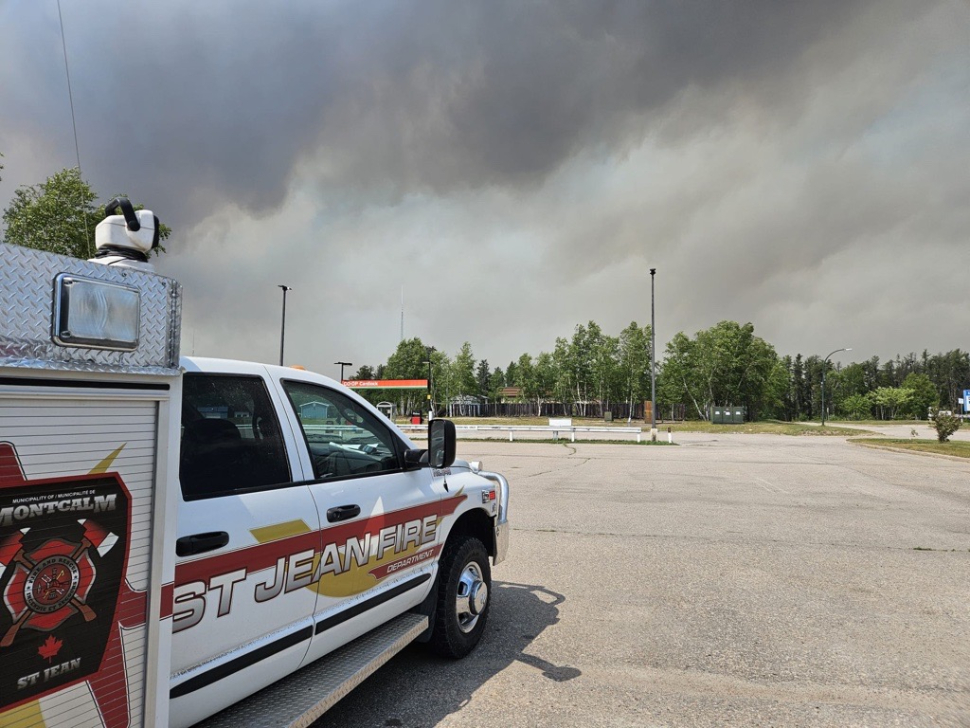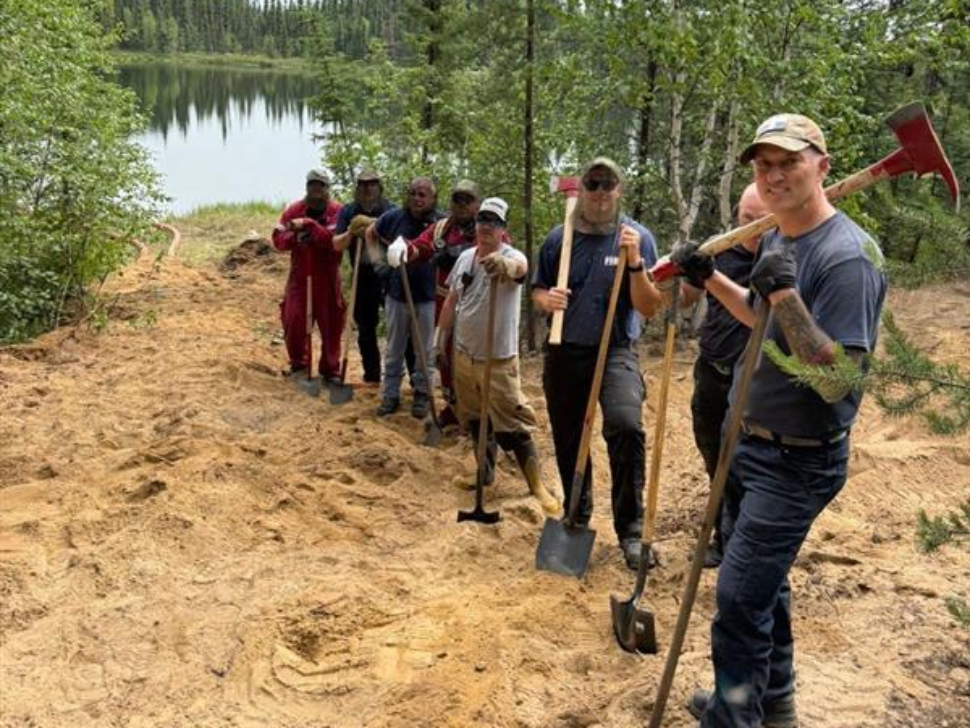It's been a long summer for local fire fighters who have been deployed in shifts to help fight wildfires across the province.
Members of the Pembina Triangle Mutual Aid District—including a St. Jean man—were first sent to Woodridge, in eastern Manitoba, at the start of the season before heading up north to Cross Lake, Thompson and most recently, Leaf Rapids.
Eugene Fillion, Chief of the St. Jean Volunteer Fire Department, has been on a few of those deployments.
"We're helping out as much as we can," he said.
"This year has been out of the norm. I think we've been deployed six times already. In April and May, where we had 30-degree temperatures and high winds, that didn't help. Everything is super dry. It's unbelievable having conditions like this."
Six deployments and counting
Fillion's latest deployment was to Leaf Rapids a few weeks ago where he was part of a crew that buried 4-inch hose for 2.5 miles.
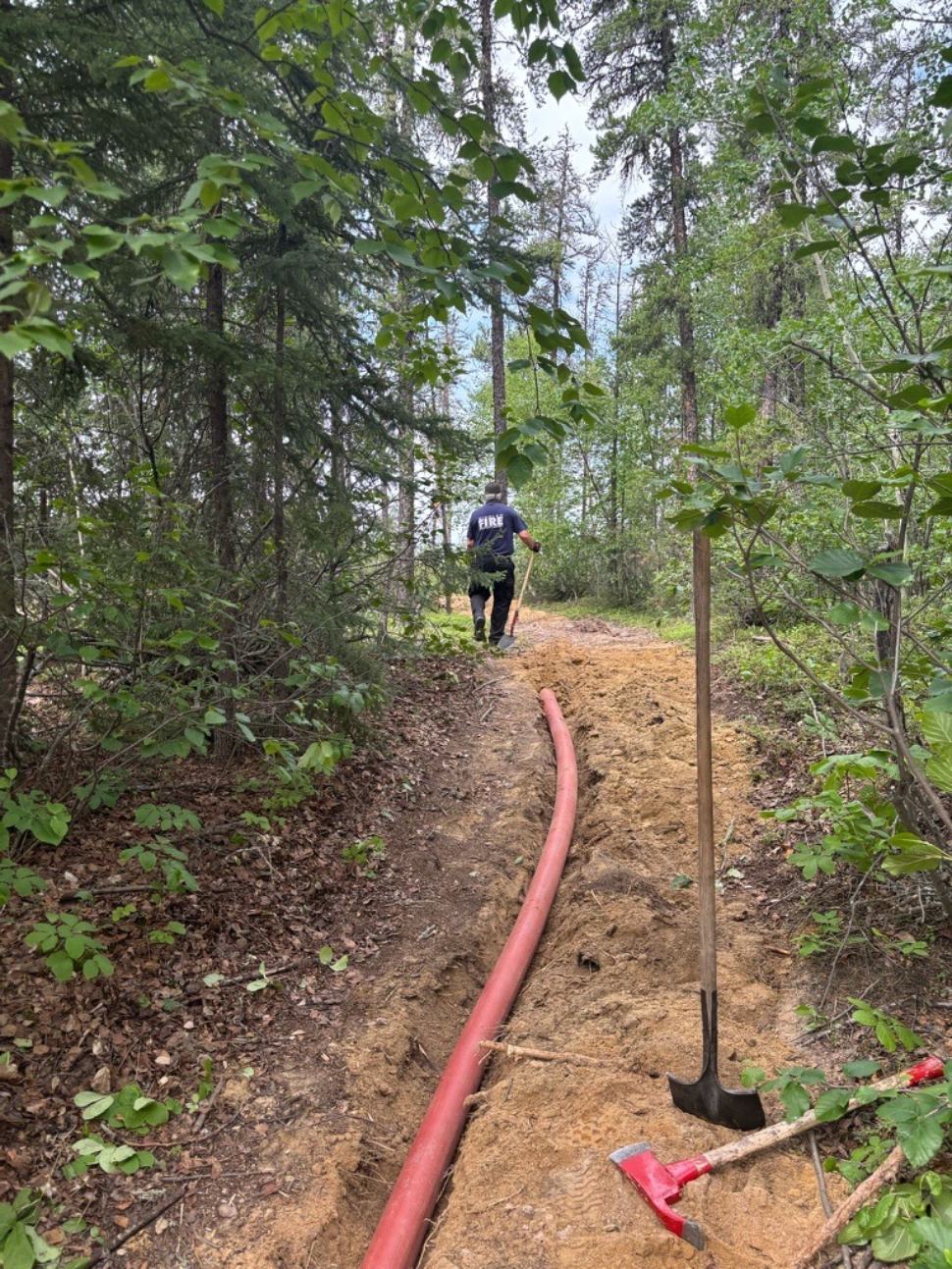
"Because in Woodridge, they left the hose on and when the fire did come down, trees were falling, and it burned all the hoses. So, this four inch was to supply pools that we had set up for sprinkles for the houses so, if the hydro went down, at least we had pumps to keep the houses wet," he explained.
The bugs!
While this was hard work, noted Fillion, perhaps even more challenging was battling the bugs!
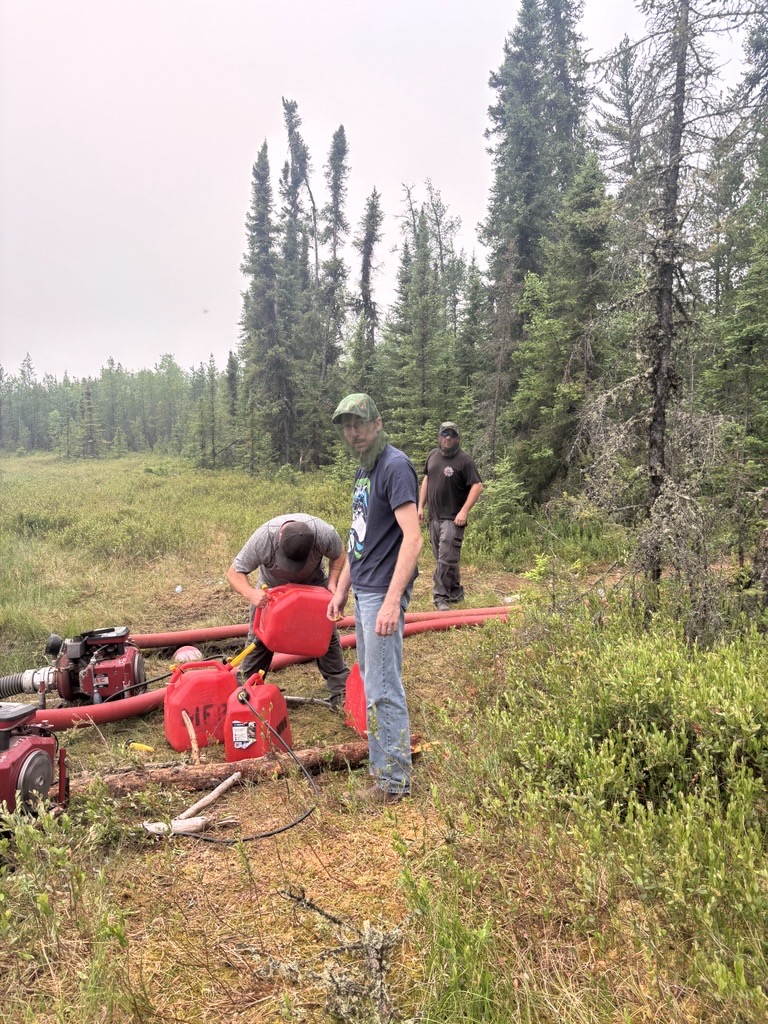
"The mosquitoes were horrible at Leaf Rapids. You couldn't even open your mouth. I said, 'we can't work with this' and another guy says, 'we're going to go crazy!' So, they ended up giving us mosquito masks to wear and as much Deet as you could put on. Some guys didn't have long-sleeve shirts - I would always wear my jacket - but some of the welts on their arms, they were all marked up from the mosquitoes and horse flies. We would drive and the front of the (truck) grill was plastered with insects."
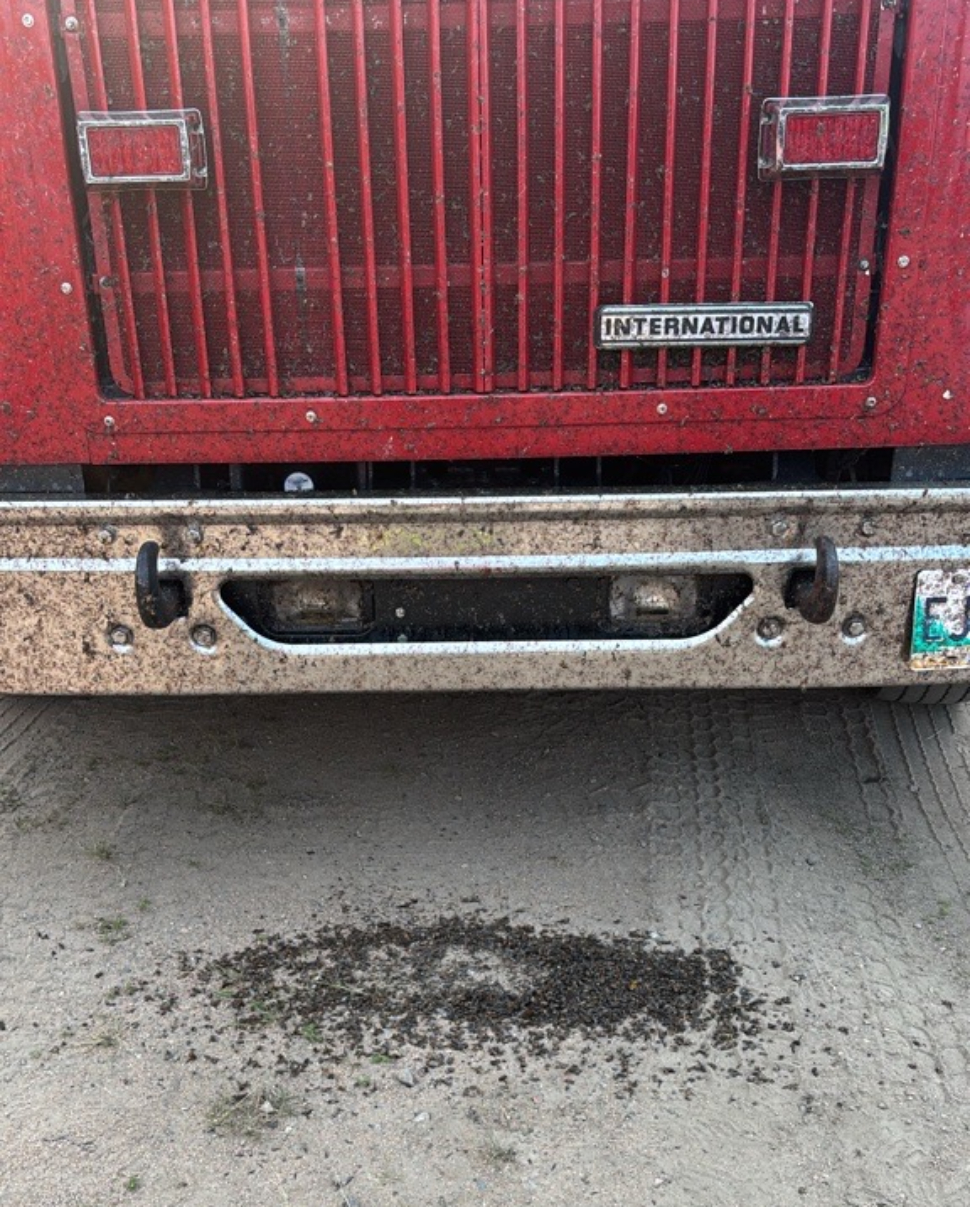
In conversation with others on the ground, Fillion says he's been told the help of our fire fighters has been greatly appreciated.
Additional challenges
And while the mutual aid district has consistently sent contingents of fire fighters and equipment to help in the battle, it has come with its challenges.
According to Fillion, the hardest part of answering the call for aid has been for fire fighters to get the time off work, noting most deployments last about six days.
"To go just for three days is not worth it - from a Friday to a Monday - you only work one day," he noted, explaining it takes a full day to travel there and another full day to head home.
